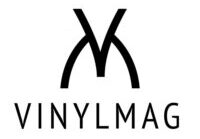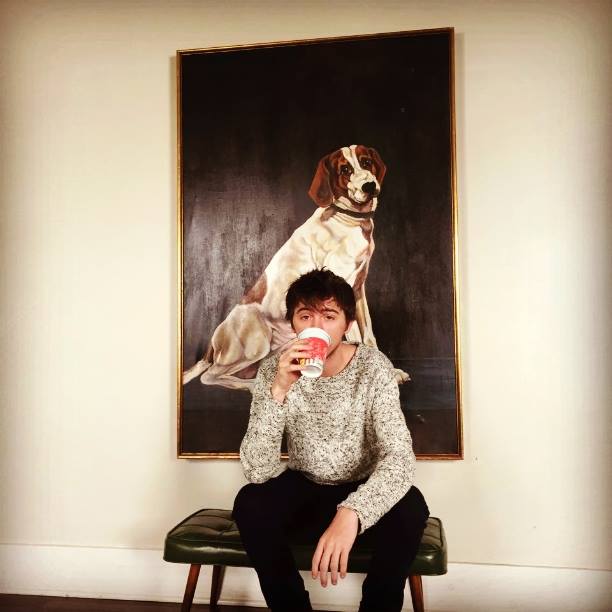His music has been called “eye-watering brilliance” by BBC Radio 1 with “a depth not often seen in young musicians” according to The Equal Ground. But behind the high (and well-deserved) praise is a street performer from England just trying to get used to the Los Angeles heat. Leo James Conroy is taking the SXSW stage this year with his signature trumpet in hand and a soulful voice guaranteed to garner fans within the first few notes.
After what he calls a “series of fortunate events,” Conroy ended up in Los Angeles performing and making music. He draws from his biggest influence, Jeff Buckley, whom he’s been compared to stylistically. Somewhere between the classical music training, the teenage emo lyric writing and a love for jazz, his soulful sound emerged.
In 2015, Conroy made his debut with a self-titled EP under Black Treacle Records. Now, his sophomore album entitled Sinners By the Book EP is on arrival. The first song off of it, “Forbidden Fruit,” is already available and full of the falsetto and blues he does so well. Between this song and his video submission for NPR’s Tiny Desk competition, the new record will be one worthy of perpetual repeat.
As I chatted with the singer-songwriter, I heard more than his British accent—I heard passion. After watching his grandfather play the trombone, Conroy decided as a child to follow in his musical footsteps. Years later, he’s getting ready to make his SXSW return and make his granddad proud. See what the artist had to say below.
Vinyl Mag: So, first of all, what shows are you playing at SXSW?
Leo James Conroy: At the moment, I only have one. There’s another one that’s still in the works, but I’m playing at Stephen F’s Bar on Saturday, the 18th. I think I’m on about 9:00 p.m.
VM: Is this your first time at SXSW?
LJC: This is my second time; last year was my first time. I played solo last year, and then I’m heading out with a band this year.
VM: Do you prefer playing solo or with a band?
LJC: It’s different every time, you know. Each song has its own sort of mood and its own sort of energy, so it really depends. It’s going to be good to head out with the guys, because last time I was completely alone. So it’ll be nice to have some friendly faces out there!
VM: What do you do to prepare for getting on stage?
LJC: Honestly, I don’t really think about it. It’s kind of weird—I don’t ever get nervous when it comes to performing, but once I’ve finished performing, the nerves hit me after I’ve played. It’s really weird. I don’t have a warm-up ritual but my warm-down ritual is just heading straight to the bars as soon as I’ve finished, and that sort of balances everything out.
VM: You have an EP coming out soon. Are you going to play some of those songs at SXSW?
LJC: Absolutely! We’re really excited about it, actually. For the new EP, I’ve been experimenting with the setup, so I recently got a loop station so that I could loop my trumpet and loop horn lines, and it’s really cool to experiment with all these new sounds. So, the last couple weeks we’ve just been practicing like crazy, and we’re just going to blast all of the tunes from the new EP. I mean, it could even be an album because things are going really well in the studio. We’re ahead of schedule, so we may fill the time with some more tunes, but we’re undecided just yet.
VM: Speaking of the loop pedal, I loved your submission for NPR’s Tiny Desk competition. What inspired the arrangement of that song?
LJC: Well, I was sat at the computer because for my writing process, I never really have a pen and paper. I just sort of sit and freestyle and then hit the record button, and then if something sounds good, I’ll keep it. So, I just laid down the guitar and vocals and thought, “hey, this could use some trumpet” and then I put some trumpet in and actually it just sort of came out nowhere. I showed a couple of friends and thought, this is something a bit different–let’s roll with it! Since then, I’ve written quite a few songs now with that kind of looped trumpet setup, which is really fun.
VM: Do you feel like the loop station has changed your writing process?
LJC: That’s a great question. I honestly don’t know, but I wouldn’t say it’s changed my writing process, because I firmly believe that whenever you write a song you should never have to rely on technology for it to be a viable piece. I like songs to be as raw as they can, but every now and then if something just needs a bit more energy, it’s always cool to pull the trumpet out since I can’t play the trumpet and the guitar physically at the same time. So, I wouldn’t say it’s changed it, but it’s definitely given me a new sort of weapon in my arsenal, and it comes to live shows.
VM: When you’re writing a song, do you usually start with the music like you did with “White Noise?”
LJC: I actually wrote the lyrics months before I put the music to it. It was actually going to be a slow, piano ballad. The song itself is a little bit about insomnia and when you get horrible thoughts when you can’t sleep, and then it turned into self-loathing, which it’s really sort of angry and weird. I thought, this isn’t good for me–I need to get these thoughts out of my head and put them on paper. Then I sort of stored it away and didn’t think of anything, and then I started playing around on the guitar and thought, “I wrote those lyrics all that time ago, maybe I can use them,” and then it just came together by accident really.
VM: Does the style of that song reflect what will be on the new EP?
LJC: Yeah, it is! Growing up playing music, I learned to play trumpet first and then as I started singing when I got older, I sort of swayed away from it, and I’ve missed it. These last few months I’ve really been trying to get back into playing some more. I’ve definitely included a lot more jazz, soulful, bluesy, and I just think the trumpet compliments that kind of well. So, it’s that very similar feel.
VM: You’ve been compared to Jeff Buckley and Amy Winehouse. Are those some of your musical role models?
LJC: Jeff Buckley, absolutely. His album Grace literally changed my life. Growing up, I always aspired to be a classical musician, and then when I was a young teenager, I heard Grace, and I would listen to it multiple times a week for probably five or six years. I listened to it so, so much, and his music completely changed the game for me musically. He’s my biggest influence for sure. Growing up I’ve always loved jazz, and I’ve always loved that old style. Amy Winehouse was just, well, she was Amy Winehouse—you don’t need to say any more about that!
VM: The trumpet seems to be your signature mark. What drew you to that instrument at the age of 10?
LJC: Well, my granddad is my best friend, my mentor, my role model, everything that I want to be as a person. He was a trombonist and was great, but it was more the classical side of music. Just whenever he spoke about music, there would be this sort of glimmer in his eye, and I was always drawn to that. He started teaching me how to play the trumpet as a kid, and I learned in a very sort of old-fashioned way. It was all about music theory and going to play in orchestras and brass bands and marching bands and doing everything prim and proper, always wearing a suit and always making sure my shoes are spick and span. But that’s what drew me to music, and then as I got older, I just drifted more to, you know, music was a little bit more freeform and less structured in terms of rules and order. So, that’s what really drew me to it–my granddad, he’s a special guy.
VM: How old were you when you started writing your own music?
LJC: I wrote some terrible, terrible emo songs when I was 15. I would hide them all around the house, because I didn’t want anyone finding them because I was always so embarrassed. But I’ve been writing seriously probably since I was 18 or 19, so six or seven years if my math is correct.
VM: How did you end up in Los Angeles pursuing music?
LJC: In the craziest way! So, as you’ve probably gathered from my accent, I was living in York in England, and I was in a bit of a bad place. I didn’t really have anywhere to stay, and I was just street performing just to get enough money to get by. And then I got heard by somebody who spoke to me and offered to fly me out to the U.S. to come and play some shows, and I didn’t really have anything to lose at that point so I said, “yeah, okay, I’ll come to the other side of the world by myself to a stranger’s house.” I ended up in Los Angeles, and I met a lady, and we started dating. I’d come over here for a while, and then she’d come back to England with me, and then we got married in July of last year! So it all happened because one day I was street performing in England, and now I’m living in Los Angeles, and it blows my mind every day. It was just a series of fortunate events.
VM: For SXSW, is there someone you’re looking forward to seeing just as a music fan yourself?
LJC: Johnny Flynn, he’s one of my favorite artists! He’s a British folk singer turned actor. Actually, he’s been in a couple of movies since his albums came out. He’s great; he sang with Mumford & Sons—he’s in that sort of sound and that circle. He’s a multi-instrumentalist as well, and he plays with a loop station, so there’s a bit of influence there. My guitar picking part in some of my songs is very influenced by him. He plays violin, trumpet, he sings, he plays guitar… he plays pretty much everything.
VM: If you had to tell a new listener in one tweet what they’ll hear at your set, what would you say?
LJC: I would say, big vocals, awkward chitchat in between, punchy horns with blues, soul and jazz influences. The thing that people are usually shocked at with my shows is that between songs, I’m pretty quiet and a little bit sheepish, and I don’t mean to be. But then I have a really loud voice, and it sort of throws people off a little bit.
VM: The last question that we always ask is: do you prefer barbecue or tacos at SXSW?
LJC: Barbecue every day of the week! I just like all things barbecue. Tacos aren’t really a thing in England, so that’s partially why. I believe I was 23 when I had my first taco, so I don’t have as much experience in that ballgame so perhaps my answer is slightly biased.

